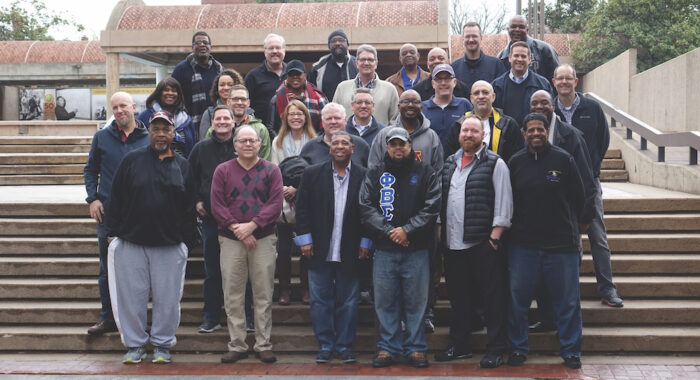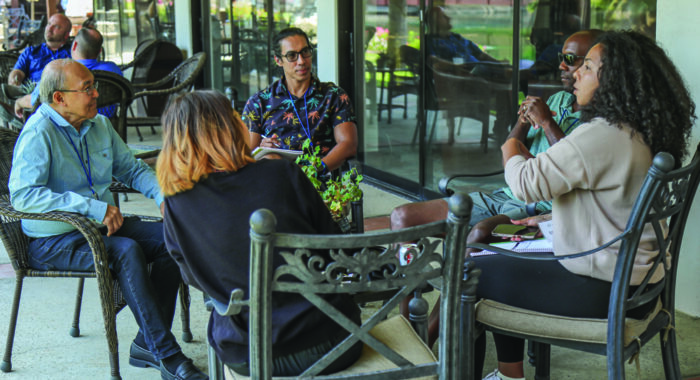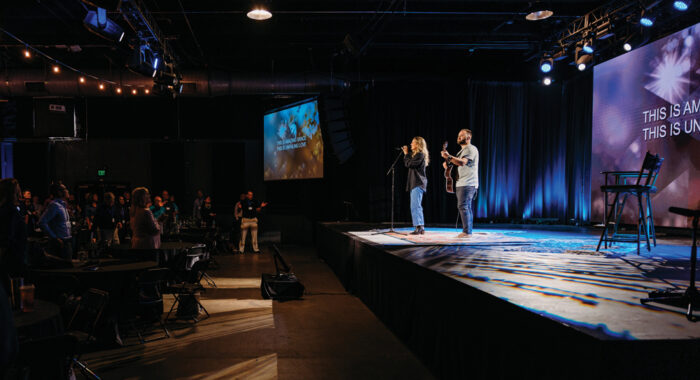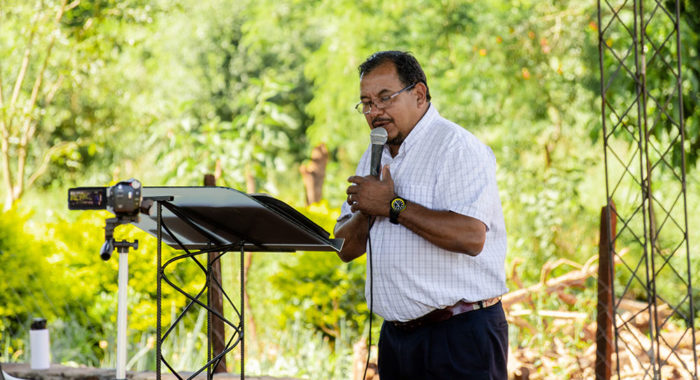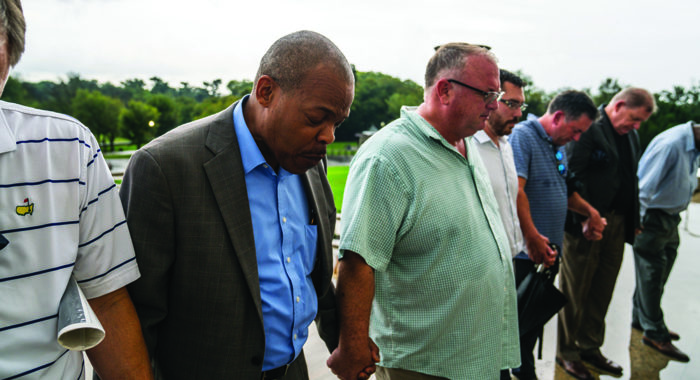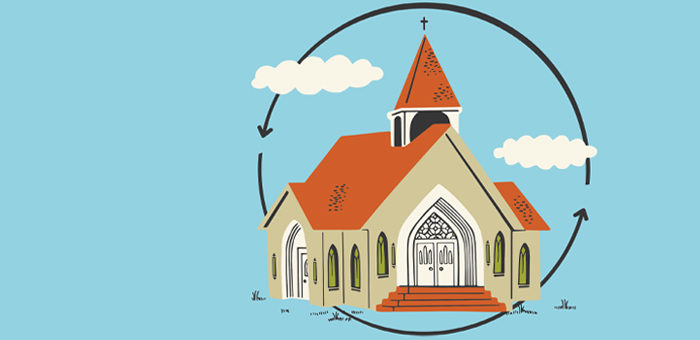Kay Warren founded Saddleback Church along with her husband, Rick Warren, in Orange County, California, in 1980, and it has grown to be one of the largest and most influential churches in the United States. Warren has written several books including “Choose Joy,” “Dangerous Surrender,” “Say Yes to God,” and “Sacred Privilege.” She advocates for those living with mental illness, those with HIV/AIDS, and the orphaned and vulnerable children who are left behind. She attended California Baptist College and earned her B.A. from California State University in Los Angeles.

In Today’s Conversation with Leith Anderson, Kay Warren offers insights and advice from her experience as a pastor’s spouse in the public limelight.
In this podcast, you’ll hear Kay share:
- How to manage spoken and unspoken expectations of the pastor’s wife;
- What pastors’ spouses can do to set boundaries;
- Her experience being vulnerable and grieving publicly; and
- Advice for church members in caring for their pastor’s spouse.
Read a Portion of the Transcript
Leith: So Kay you have been in ministry your entire life; you are a pastor’s daughter, a pastor’s wife. So I’ve got to ask: Did you grow up wanting to do this? Did you want to be a pastor’s wife?
Kay: You know, I actually wanted to be a missionary. And growing up in the ‘50s and ‘60s in a pretty conservative denomination, that was really the only option open to me as a girl if I really wanted to serve the Lord full time. So that was the direction I was heading, and I was not opposed to being a pastor’s wife. I had good feelings about growing up in a pastor’s home, so it wasn’t something that I ran from. But I sure didn’t anticipate it.
Leith: So, a life in ministry can be wonderfully rewarding and meaningful but can also be deeply challenging with unexpected pressures and stresses — many of which are kind of unique to pastors and their families. So let me ask you a question that I have been asked, but I will put it to you specifically, and that is: What is something you would tell young people who are entering this unique position of being married to a pastor?
Kay: Well, I really do believe it is a sacred privilege. You alluded to the title of a book I am in the process of writing. And when I first started teaching it to ministers’ wives almost 30 years ago, I first called it “The Changing Role of the Pastor’s Wife.” I was young in ministry. Everything around me was changing. It wasn’t the world that my mother — my mother as a pastor’s wife, I was used to that — and this role was changing, so I called it “The Changing Role of the Pastor’s Wife.” And then as Saddleback began to grow and expand, I changed the material title to “How to Grow With Your Church” because then those were the issues I was having to deal with as our church was growing and nothing stayed the same and how did I adjust to this expanding ministry.
And then I kind of hit a more difficult stage of both life and ministry, and I changed the material title to “How to Keep the Ministry from Killing You,” and taught that for several years because that really reflected what I saw a life in ministry. I was having to do everything I could think of to keep it from killing me. Now I as settle into this fourth decade of ministry, I really do see it as a sacred privilege.
So when I talk to women — and increasingly more men whose wives are becoming pastors or senior pastors — I really want them to understand that it is a privilege. There is a lot that changes through the years — through the decades. There are periods in which you are going to think that it’s going to kill and what do you have to do to keep it from killing you. But to settle into that space of believing with all your heart that it is a privilege.
My mom is 92 and has dementia, so there’s a lot of her personality and her memories that are fading. But when I ask her about her years — 50 plus years — in ministry she says the same thing every time. She says, “I always thought being in ministry was a privilege.” So that set it up for me to look at this as a life of privilege. It’s different than any other profession. It has some pitfalls, and some — as you said — disappointments that other professions don’t have.
And honestly there have been more than a few moments in which I have wished that Rick had been anything but a pastor — that I had married a plumber or a pool cleaner, I don’t know, anything but a pastor — because it’s difficult at times. But I really have settled into believing that it is a privilege. And when you look at it through that lens, it allows you to interpret the things that happen over the decades of ministry with that as a framework, as opposed to “Oh my gosh, this thing is going to kill me. How am I going to survive?”
Leith: That’s a great perspective. I am trying to envision a book entitled “How to be a Plumber’s Wife,” but there’s probably not a whole market for that. But that brings up the question of the expectations that come on a pastor’s spouse — particularly a pastor’s wife — that are different from being a spouse of a pool cleaner or a plumber. And that is that in the church, especially in smaller churches, it may be the expectation that you are sort of a volunteer employee, that you’ve got to be at everything. How do you deal with that? And specifically how do you deal with that if you also have a career employment that is full time that people may not take into consideration? So how do you deal with those expectations that you sort of come along as a …
Kay: A two for one. It’s a two-for-one deal. I have to look at that again through even my parents being in smaller churches and then us being at Saddleback. I mean we started very small with just the two of us — you can’t get any smaller than that — and have been in this church now as it’s gone through all these stages of expansion over these decades. And when I think about that the majority of churches in America really are still churches of under 200, and there are pretty hard expectations I think of pastors and their families.
And what I’ve tried to balance that with is, when we started the church, we divided the roles down the middle. We had young kids — in fact we just had a baby at the time — so there was just the three of us, and anything Rick didn’t do, I did. Then over the course of the years as more and more people came into the church, I was able to take off some of those hats that I had worn that weren’t necessarily what I was good at, but somebody needed to do it, and then give those jobs away to other volunteers.
You know, let me just circle a little bit here, because I think that part of the problem, two problems that I see around expectations are one, pastors and their families get caught in this “walk on water syndrome.” Edward Bratcher wrote a book in the ‘90s called “The Walk on Water Syndrome,” and it’s excellent. If you can find it anywhere — on Amazon or some other book supply — find it, because his first chapter alone is valuable as he talks about this game, unfortunately, that pastors and their families end up playing with the congregation. Nobody really sets out to play this game, I don’t think. But there is this expectation — particularly in smaller churches — that the pastor is the minister. And he is therefore supposed to minister. He’s supposed to do the ministry. When really the Bible teaches that the pastor is to equip the church members to do the ministry. And in smaller churches there is this expectation that the paid professional is supposed to do all the visitations, all the home visitations, all the preaching, all the Wednesday night Bible studies, all the weekday Bible studies, the marrying, the burying, the somebody’s in the hospital sick.
And that is a recipe — I watched it happen to my dad, I watched it happen to Rick’s dad who was also a pastor — when the church has this expectation that the minister is going to do the ministry, that leaves everybody else sitting in the pew watching this poor, exhausted pastor and often his wife or his family doing the majority of the ministry. And that is a perversion — I really use that word that’s a perversion — of what the Bible teaches that the pastor is to equip the saints, equip the ministers to do the ministry. And God has given every person sitting in that pew or in a gymnasium or rented facility, he’s given us all a spiritual gift and that is to build up the Body of Christ.
So one of the things that I talk to pastors and their spouses is that there is a theological misunderstanding of what a pastor is supposed to do. And as long as we continue to play that game or work off of that broken theology, we are going to be exhausted. We are going to be pushed beyond our limits. So I think pastors need to go back, look at what the Word says, understand that their prime job is to equip the saints, equip the members to do the ministry, and that spreads out some of the expectations…
Share the Love
If you enjoyed the program, please rate it on iTunes and write a brief review. That will help get the word out and raise the visibility of the show.



 View All Podcasts
View All Podcasts 




